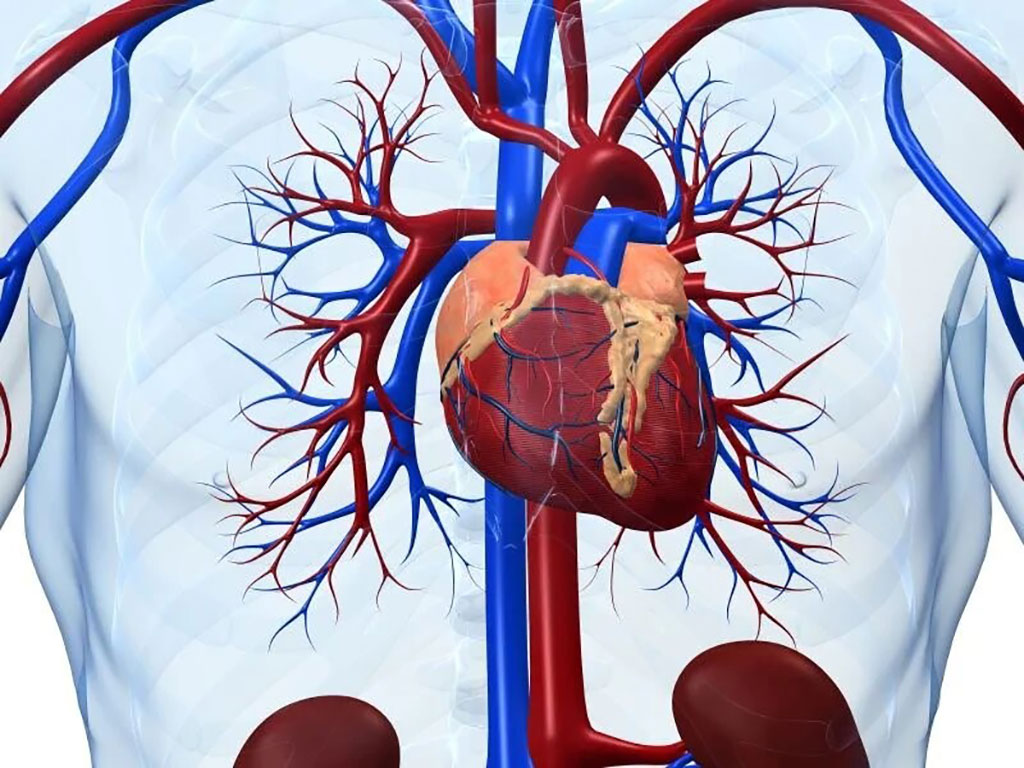Genetic Variants Associated with Unexplained Sudden Cardiac Death
By LabMedica International staff writers
Posted on 22 Jun 2021
As many as 450,000 Americans die every year from a sudden, fatal heart condition, and in slightly more than one in ten cases the cause remains unexplained even after an autopsy. Most sudden cardiac deaths are caused by abnormal heart rhythms called arrhythmias and the most common life-threatening arrhythmia is ventricular fibrillation. Posted on 22 Jun 2021
Unexplained sudden cardiac death (SCD) describes SCD with no cause identified. Genetic testing helps to diagnose inherited cardiac diseases in unexplained SCD. However, the associations between pathogenic or likely pathogenic (P/LP) variants of inherited cardiomyopathies (CMs) and arrhythmia syndromes have never been systematically examined.

Image: Genetic variants are associated with unexplained sudden cardiac death in both adult White and African American individuals (Photo courtesy of Latin American Society of Interventional Cardiology)
Cardiovascular Scientists at the University of Maryland School of Medicine (Baltimore, MD, USA) and their many colleagues performed genetic sequencing in 413 patients, who died at age 41 on average of sudden unexplained heart failure. This genetic association study included 683 African American and White adults who died of unexplained SCD and were included in an autopsy registry. Overall, 413 individuals had DNA of acceptable quality for genetic sequencing. Data were collected from January 1995 to December 2015. A total of 30 CM genes and 38 arrhythmia genes were sequenced, and variants in these genes, curated as P/LP, were examined to study their frequency.
The team reported that the median (interquartile range) age at death of the 413 included individuals was 41 (29-48) years, 259 (62.7%) were men, and 208 (50.4%) were African American adults. A total of 76 patients (18.4%) with unexplained SCD carried variants considered P/LP for CM and arrhythmia genes. In total, 52 patients (12.6%) had 49 P/LP variants for CM, 22 (5.3%) carried 23 P/LP variants for arrhythmia, and two (0.5%) had P/LP variants for both CM and arrhythmia.
Overall, 41 P/LP variants for hypertrophic CM were found in 45 patients (10.9%), nine P/LP variants for dilated CM were found in 11 patients (2.7%), and 10 P/LP variants for long QT syndrome were found in 11 patients (2.7%). No significant difference was found in clinical and heart characteristics between individuals with or without P/LP variants. African American and White patients were equally likely to harbor P/LP variants.
Aloke Finn, MD, Clinical Associate Professor of Medicine and the senior author of the study, said, “Genetic screening isn't routinely used in cardiology, and far too many patients still die suddenly from a heart condition without having any previously established risk factors. We need to do more for them. What we found opens the door and asks some important questions. Should we be doing routine genetic screening in those who have a family history of unexplained sudden cardiac death?”
The authors concluded that in this large genetic association study of community cases of unexplained SCD, nearly 20% of patients carried P/LP variants, suggesting that genetics may contribute to a significant number of cases of unexplained SCD. The findings regarding both the association of unexplained SCD with CM genes and race-specific genetic variants suggest new avenues of study for this poorly understood entity. The study was published on June 2, 2021 in the journal JAMA Cardiology.
Related Links:
University of Maryland School of Medicine














